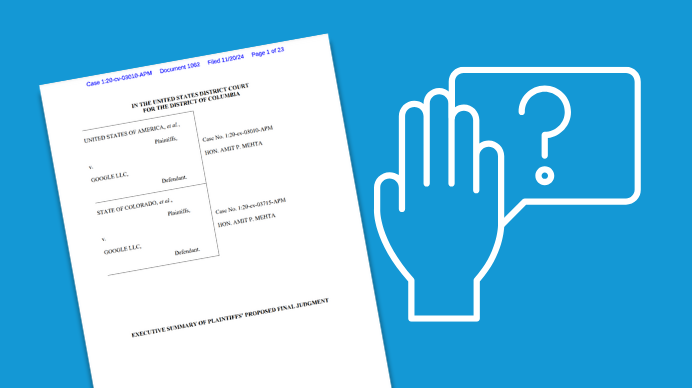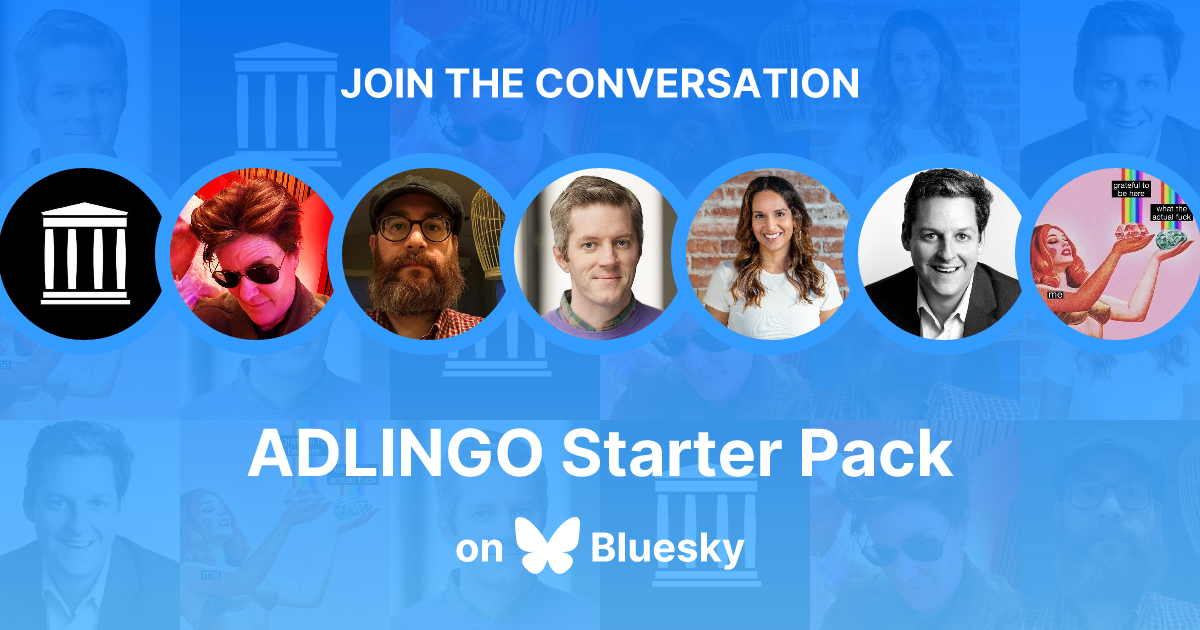The latest volley in the government's battle against Google? A recommendation to force Google to spin off its Chrome browser. Yes, the very same Chrome that likely brought you to this post in the first place.
If you’ve been following along, this move is the DOJ’s answer to a court ruling earlier this year that found Google’s search dominance to be a big ol’ monopoly violation.
Their latest logic goes like this: Chrome, with its 61% share of the U.S. browser market, is a major gateway to Google Search. By cleaving it off, the DOJ hopes to hobble Google’s ability to maintain its search chokehold and give other competitors a fighting chance.
But does that logic hold up?

The case for splitting Chrome from Google
First, let’s give the DOJ its due. Google’s integration of Chrome with its search engine is, to put it mildly, synergistic. You open Chrome, type something into the omnibox (the fancy name for the address bar), and boom—Google Search results. Sure, you can change your default search engine (Bing lovers, I see you), but how many people actually do that?
According to the DOJ, Chrome’s dominance as a browser feeds directly into Google’s search monopoly, creating a self-reinforcing cycle that squeezes out competitors.
By spinning off Chrome, the government hopes to level the playing field, giving other search engines a shot at more market share. Think of it as a browser-sized crowbar aimed at prying open Google’s grip on the internet.
The DOJ is essentially saying, “Google, you’ve had your fun, but it’s time to share.”

The fallout for Google
What losing Chrome would mean for the Big G?
Chrome isn’t just a browser; it’s a data goldmine. Every click, scroll, and typo in the omnibox helps Google refine its search and advertising algorithms.
Without Chrome, Google loses one of its most powerful tools for collecting user behavior data. This could put a dent in its core advertising business, which, let’s be real, funds everything from your free Gmail account to those adorable Doodles on the homepage.
And then there’s the brand synergy. Chrome isn’t just a browser; it’s part of the Google ecosystem. From syncing with Google Drive to autofilling your saved passwords, Chrome makes Google feel like an indispensable part of daily life. Strip that away, and the whole ecosystem feels a little less (a lot less) cohesive.
"...radical interventionist agenda that would harm Americans and America’s global technology leadership." - Kent Walker, Chief Legal Officer at Google.
Of course, Google isn’t taking this lying down. In a statement, the company called the DOJ’s proposal extreme and harmful to consumers and innovation.
Translation: “We’re not going down without a fight.”

What about us, the users?
Here’s where things get tricky. Let’s say the DOJ gets its way, and Chrome becomes its own independent entity. What does that mean for us—the billions of people who use Chrome every day?
For starters, there’s a real risk that an independent Chrome might struggle to maintain the same level of innovation, security, and user experience. Right now, Chrome benefits from Google’s deep pockets and engineering talent. Take that away, and we could see slower updates, less robust security features, and fewer new features.
And then there’s the question of whether a spin-off Chrome would still play nice with Google’s other products. Would your bookmarks and saved passwords sync as seamlessly? Would Google prioritize compatibility with Chrome, or would it shift focus to other browsers?
Maybe Google spreads its technology love to all of the browsers in more equal measure. Maaaybe?
Some experts have raised concerns that an independent Chrome could end up being worse for users—not better.
A browser revolution or a solution in "search" of a problem? 🥁
Here’s my take: while I get the DOJ’s desire to rein in Google’s power, I’m not convinced this is the right way to do it.
Yes, Chrome’s dominance is a problem for competition, but it’s also a product of its own success. People use Chrome because it’s fast, reliable, and (usually) better than the alternatives. Punishing that success feels a little...off.
That said, some of the other included requirements that go along side the spinoff are very interesting. They include:
- Data Sharing with Competitors: The proposal suggests that Google should share its search data with rival search engines to foster competition and innovation.
- Ending Exclusive Agreements: The DOJ advises prohibiting Google from entering into exclusive deals that set its search engine as the default on devices like iPhones, thereby reducing barriers for other search providers.
- Restrictions on Artificial Intelligence (AI) Usage: The proposal includes limiting Google's ability to leverage its AI technologies in ways that could reinforce its search monopoly, ensuring a more level playing field for emerging AI-driven search solutions.
And let’s not forget, spinning off Chrome doesn’t automatically guarantee a win for Google’s competitors. Sure, it might give search engines like Bing or DuckDuckGo a slightly bigger slice of the pie, but will it fundamentally change the way we use the internet?
Ehh.
What this means for Advertisers
If Chrome gets spun off from Google, the advertising could face some seismic shifts, mainly in the form of more unknowns.
Chrome isn’t just a browser; it’s one of the key pillars in Google’s data ecosystem. Advertisers benefit from the deep insights Chrome feeds into Google’s ad targeting, measurement, and attribution capabilities.
Without that tight integration, those data streams could be disrupted or diminished, leading to less precision in ad targeting and potentially higher costs for advertisers trying to maintain performance.
On the other hand, the shift could spark innovation in ad-tech. A more open browser ecosystem might encourage the development of alternative tools for audience targeting and measurement.
For advertisers who’ve felt trapped by Google’s dominance in both search and display, this could present an opportunity to diversify media strategies and leverage emerging technologies.
That said, there are potential downsides. A fractured ecosystem might mean more complexity for advertisers, with additional platforms to integrate, monitor, and optimize across.
And let’s not forget, an independent Chrome may still end up relying on Google’s advertising infrastructure—just in a less seamless way—leaving advertisers stuck with most of the same challenges.
For now, advertisers should keep an eye on how these developments play out and start thinking about how to adapt their strategies in a world where Google’s dominance is no longer a given. It could be the start of a more competitive and diversified digital landscape—or just another layer of chaos in an already complex ecosystem.
What Happens Next?
The DOJ’s proposal is just that—a proposal. Google is expected to fight this tooth and nail, and the legal battles could drag on for years. In the meantime, the tech world will be watching closely to see how this all shakes out.
One thing’s for sure: this case has the potential to reshape the digital landscape in ways we haven’t seen since the days of the Microsoft antitrust battles in the ’90s. Whether that’s for better or worse remains to be seen.
Final Thoughts: A Browser Without Borders?
At the end of the day, this debate isn’t just about Chrome or Google. It’s about the kind of internet we want to have. Do we prioritize competition, even if it means breaking apart products that work well together? Or do we accept some level of dominance in exchange for convenience and innovation?
One thing is clear—whatever happens with Chrome, it’s going to set a precedent that will ripple across the industry for years to come. As always, hit reply and let me know what you think—especially if you’re reading this in Chrome.








